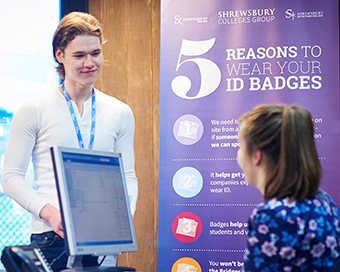As we get closer to the festive break, we thought it would be helpful to provide you with some relevant information about staying safe in the run-up to and during the holidays.
This information is to keep you safe, but also to enable you to be a good friend and look after others whilst enjoying the holidays.
We want you and your friends to enjoy Christmas and the New Year. We hope this information will help keep you all safe.
General advice
When you go out:
- Tell people where you are going, when you will arrive and when you will be coming back.
- Let people know when you have arrived.
- Stay with your friends and people you can trust.
- Watch out for your friends to make sure they are safe.
Spiking
Traditionally, ‘spiking’ is a term that refers to somebody adding something to a drink (such as alcohol or soft drinks) without that person being aware.
In addition to reports of ‘drink spiking’ (which is by far the most common form of ‘spiking’), we have heard recently of reports of people being ‘spiked by injection’.
Fortunately, the risk of ‘spiking by injection’ is very rare compared to ‘spiking of drinks’. Any reports about a suspected spiking incident, whether by drink or suspected injection, should be taken very seriously and the police should be informed as soon as possible.
What are the effects of spiking?
The effects of spiking can vary slightly for each person. Reactions differ based on a person’s age, sex, size and the type of drug or alcoholic beverage.
Common effects include:
- Unconsciousness
- Decreased inhibitions
- Paralysis
- Inability to protect yourself
- Feeling sick or being sick
- Memory loss (this is a classic sign)
Some people who have been affected by spiking feel as if they have had more alcohol than they did or sense that they have had sex but do not remember it.
What should I do if I think I have been spiked or a friend has been spiked?
If you or your friends begin to feel drunk after having only a small amount of alcohol or no alcohol, or you think your friend’s drink may have been spiked, then you should:
- Get help from a friend you trust, a relative, or a member of staff (if you are in a club or pub).
- Go to a place of safety as soon as possible, but only go home with someone you totally trust. If you are with people you do not know, contact a trusted friend or relative to come and take you home and look after you.
If your friends start to feel very sleepy, sick or hallucinate, then they should visit their GP or local Accident and Emergency Department immediately. You should also contact the police as spiking is illegal. The police may ask for a sample of their blood or urine to test, to find out if drugs have been used. It is important they are tested as soon as possible if they think that they have been spiked as most drugs leave the body within 12 to 72 hours.
How can I try to prevent drinks from being spiked?
You should:
- Not leave your drink unattended and keep an eye on friends' drinks.
- Drink from a bottle rather than a glass if you can. It is more difficult to spike a drink in a bottle; keep your thumb over the opening.
- Always keep your drink in your hand.
- Never accept a drink from someone who you do not know or trust.
- Not share, swap, or drink any leftover drinks.
Some clubs or pubs can provide devices which can reduce the risk of drinks being spiked. You can also buy special plastic tops to go in bottles from supermarkets. There are also kits available in many pubs and clubs so you can test your drink to see if it has been spiked.
What should you do if you suspect you have been ‘spiked’?
Unfortunately, in many cases of drink spiking (and now reports of ‘spiking by injection’), you or your friends might not even realise anything is wrong until the event has passed. Your friends may wake up uncomfortable and with memory loss and most people who have their drinks spiked blackout eventually. A blackout can last up to 12 hours and is followed by memory loss.
We would advise any individual who suspects they have been a victim of spiking to report this to the police as soon as possible.
Advice for anyone dealing with individuals who have reported a ‘suspected spiking incident’:
- Try and reassure the victim, keep them as calm as possible.
- Assess the situation: does the victim need medical assistance? If so, call an ambulance.
- If appropriate, please call the police.
Further advice and guidance
There are many other resources that can give further information on spiking and what to do to combat it. The NHS has some excellent resources:
AE2594-drink-spiking-july-2017.pdf (nth.nhs.uk)
NHS 111 Wales - Health A-Z : Drink spiking
Other useful resources:
Drink spiking and date rape drugs | Drinkaware
Spiking – top tips to stay safe | FRANK (talktofrank.com)
We would like to wish you a safe and happy Christmas and New Year.







